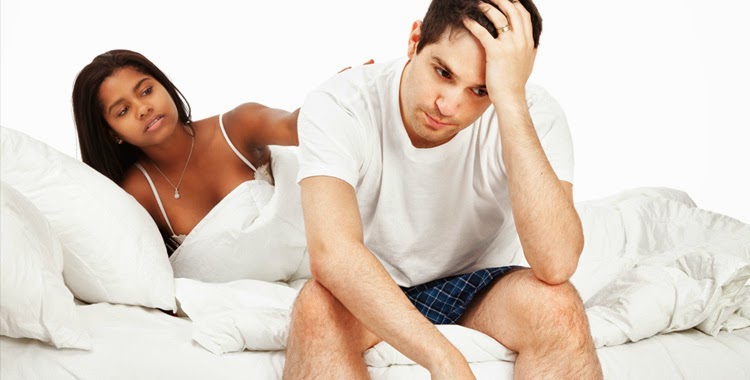Impotence, or erectile
dysfunction (ED, E.D.), as andrologists prefer to call it, has always been and
continues to remain an extremely common disorder. It is said to afflict as much
as 10 percent of the male population. Above the age of 40, nearly 52 % of men
are affected. Despite this staggering incidence, few cases come to light.
Contrary to popular belief,
impotence is almost never an 'all or none' phenomenon. Most laymen (and several
doctors) believe that a man can either have an erection of very good quality or
none at all. Nothing can be farther from the truth. Most men with erectile
dysfunction have normal desire and can obtain an erection, only the erection is
not hard enough or doesn't last long enough, Hence the term erectile
dysfunction (which suggests partial loss) is preferred to impotence (which
suggests a total loss). Not many are aware that in most cases organic rather
than psychological causes are responsible.
Symptoms
and Causes
Commonly called male
impotence, ED is the inability to achieve or maintain penile erections
sufficient for intercourse. ED often has a psychological component, and
counseling with a psychotherapist or sex therapist often resolves the problem.
ED can also be a symptom of cardiovascular disease and diabetes, both of which
can impair blood supply to the penis. In addition, many medications, including
those prescribed for high blood pressure and mental health conditions, can
interfere with sexual functioning. Tobacco, cocaine, stimulants and alcohol may
also play a role.
Suggested
Lifestyle Changes
Bear in mind that some of
the problems leading to erectile dysfunction may lend themselves to the
following non-drug (and cost-free) solutions:
- Stop smoking. Nicotine can reduce genital blood flow and impair potency.
- Check your meds. ED and sexual dysfunction are unfortunate side effects of many drugs. Consult with your pharmacist or doctor regarding substituting alternate medication without these effects.
- Limit alcohol consumption. Alcohol’s depressive effects can have a negative impact on sexual functioning.
- Shape up. ED is often linked with restricted blood flow to the penis. Keep your heart and arteries in good condition by maintaining a healthy weight, and following a diet high in fruits, vegetables and whole grains. Avoid saturated fats and trans fats. Regular aerobic exercise can both improve blood flow to the genitals and reduce the stress that can contribute to ED.
- Deal with anxiety, depression and stress. These feelings may undermine desire and potency. Practice a daily stress-reduction technique such as breath work, meditation or yoga. Talk with your partner openly and honestly about your needs – and their needs – to help ease relationship tensions and avoid resentment and misunderstandings.
- Don’t worry about your age. Sexual activity needn’t end because of age – that’s a myth you can discard.
Supplements
Ashwagandha, from the roots
of a plant in the nightshade family called Withania somnifera, is
reputed to be a mild aphrodisiac and has long been popular in India. Asian
ginseng, or Panax ginseng, is a good general stimulant and sexual energizer.
For either or both, follow the dosage on the package, and give it a six or
eight week trial to have an good effect.




No comments:
Post a Comment